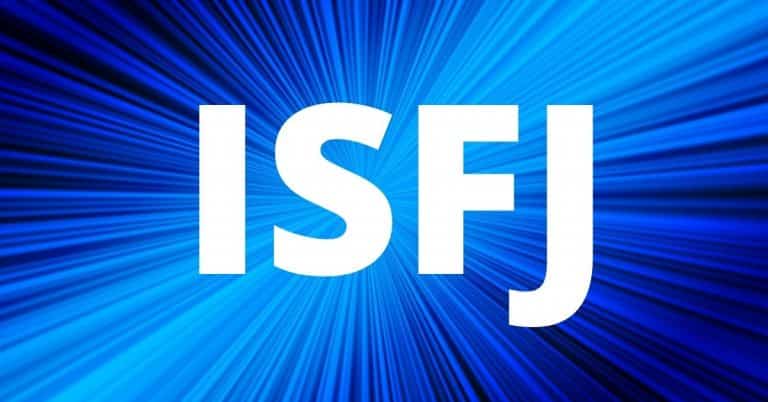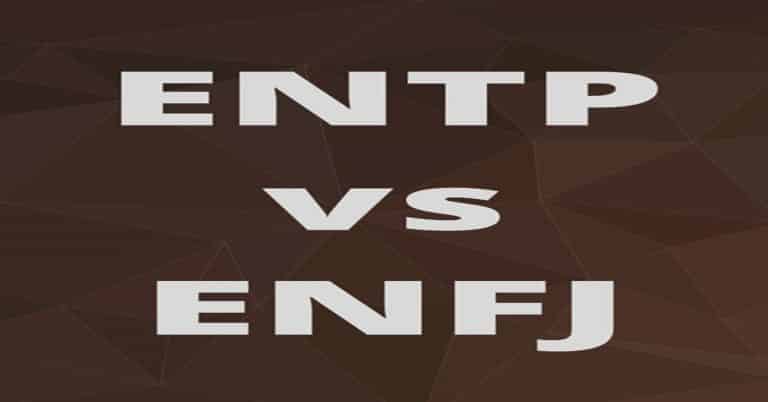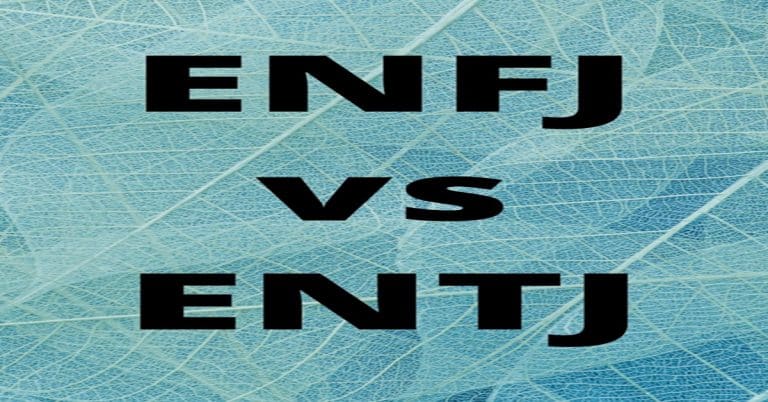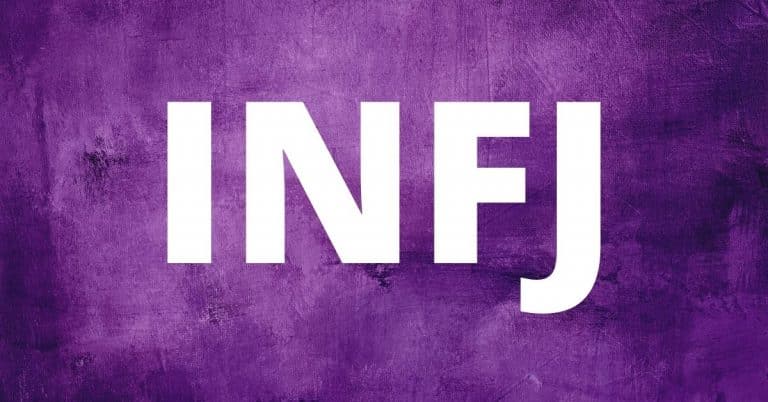ENFJ – The Protagonist
Contents
Meaning of ENFJ
EFNJ’s tend to be your brave heroes of fantasy and legend, with a typical combination of – Extraversion, Sensing, Feeling, and Judging. ENFJs are certainly rarer personality types, consisting of just 3 percent of the population, with 3 percent of men reporting in as ENFJ’s and women reporting as low as 2 percent. The ENFJ is rare, which would make sense when delving deeper into their attributes. ENFJ’s are born leaders. They are your knights and kings of old, the doting heroes in literature and film.
ENFJ’s are naturally charismatic, which complements their tendency towards Extraversion particularly well. This charisma is largely due to their unusually high emotional intelligence and empathic nature. ENFJ’s have the ability to rapidly read, detect and respond to emotions almost effortlessly, allowing them to navigate conversations, presentations & speeches with admirable and inspiring ease.
ENFJ’s tend to be people-oriented in the extreme. This tendency can either be an invaluable asset or their most significant area for opportunity. They take the feelings, thoughts, and ideas of others with a heavy heart and sober earnestness. This altruism makes the ENFJ so highly respected, admired, and doted upon. It is, therefore, unsurprising in the slightest that ENFJs gravitate towards leadership. The other side of the coin is that ENFJs tend to take public opinion, perception, and criticism on a profoundly personal level. This sensitivity can be potentially problematic when the perception or opinion is negative.
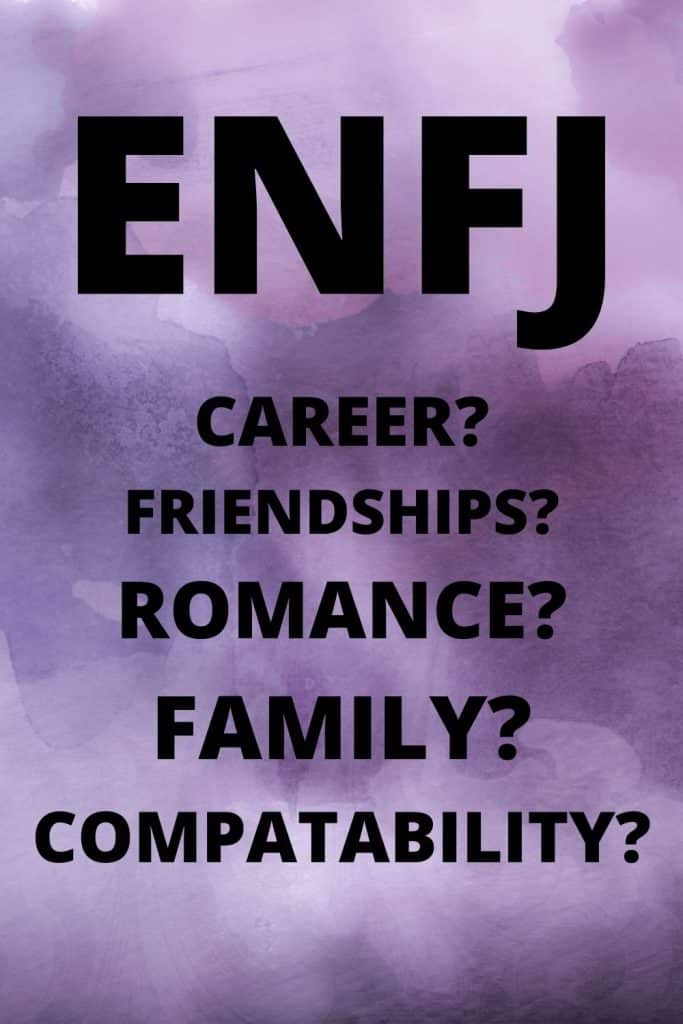
ENFJ’s and Career:
ENFJ’s tend to be most comfortable or natural in team-oriented careers and professions. They also have the natural tendencies to make for markedly effective leaders. They shine particularly bright when they are in a position that offers a profound opportunity to develop, nurture and grow others.
They are gifted with a boundless charisma that motivates, moralizes, and inspires teams. They can rally even the most cynical or pessimistic individuals around a common goal. ENFJs truly thrive when they can make deep and meaningful connections with those around them. This is true for the workplace just as much as it is for their personal relationships.
However, ENFJ’s also tend to be people-pleasers, sometimes to their own impediment. While this compulsion to make everyone around them happy and satisfied can be conducive and essential to some work environments, it can also be crippling or paralyzing when there are particularly difficult decisions to be made or followed.
ENFJ’s as Direct Reports:
As direct reports, ENFJ’s are incredibly effective when working within a team, enthusiastically realizing and embracing the overall vision and goals. Having an ENFJ on any given team can be highly beneficial; however, it is crucial to take care that the ENFJ completely understands the vision or goal. That is not to say that they will disagree or resist. Rather, it is just the opposite. The ENFJ tends to co-operate and execute regardless of personal belief. Instead, it is best to get complete buy-in and understanding from the ENFJ as the natural enthusiasm that they will bring to the team is nothing short of infectious. It will almost certainly boost morale and garner excitement around even the most daunting goals or tasks.
This enthusiasm comes from the ENFJ’s tendency for optimism. While no doubt valuable, this optimism can also be perceived as superficial and naive to the more pessimistic personality types, especially when the challenge of the goals is blatant. By no means does this pessimism deter the ENFJ; however, they realize that they will take extra care and rallying to establish buy-in.
ENFJ’s as Leaders of Others:
ENFJ’s make for perfectly competent and effective leaders. They have a natural affinity to inspire, encourage, develop, and realize the potential of others. The connection and bond between an ENFJ and his/her team can be nigh unbreakable. The group members tend to feel appreciated, valued, and recognized. Allegiance is particularly powerful when tasks or goals seem unpalatable or unachievable. The ENFJ can rally and motivate a team behind anything, as long as they are the ones leading the charge.
ENFJ’s tend to also be highly collaborative and inclusive in their leadership style. They will listen to and respond to the team’s feedback, thoughts, and concerns without exception. This style is highly effective in smaller teams where there is usually an established and close rapport amongst the team, however, this style can face challenges in larger team setting and dynamics, where the thoughts and concerns may be much more varied.
ENFJ’s will also not hesitate to change direction, approach, or method directly to this feedback. This constant collaboration with their team makes the individual members feel valued and the ENFJ so revered.
However, one area of particular concern for the ENFJ is the potential for indecisiveness. This same constant collaboration with their team can make for difficulty deciding the next steps or direction, particularly true when the opinion of the team or the public is divisive or polarized. Given the ENFJ’s propensity to take criticism or disagreement heavily, the idea that the entire team is not in complete unison with any given decision or direction can be discouraging and debilitating.
ENFJ Professions:
An ENFJ’s tendencies lend to a vast array of professions and career choices. ENFJs are indeed well equipped for leadership roles in almost any given industry, such as advertising, sales, Real Estate, insurance, or Public Relations, to name only a few.
Also, given the ENFJ’s empathic and generous nature, social work can be an excellent fit for the ENFJ. These can include, but are not limited to Child Care Worker, Social Worker, Community workers, non-for-profit organizers. ENFJ’s tendencies are also aptly suited for education and teaching. Given the ENFJ’s preference to develop and grow others, they have the potential to be the ideal mentor as either instructor, teacher, or professor.
While ENFJ’s do indeed have their pick for professions and careers, there are some that they may want to either consider first or avoid entirely. These would primarily include any domain that is not within the context of a team. The natural preferences and strengths of the ENFP are related to working with and leading others. Therefore, any position with little to no social dynamic could be a potential challenge for the ENFJ. Examples can include engineers, IT specialists, computer specialists, programmers. That is not to say that the ENFJ would not thrive in these given fields; however, given their primary tendencies, it could prove challenging.
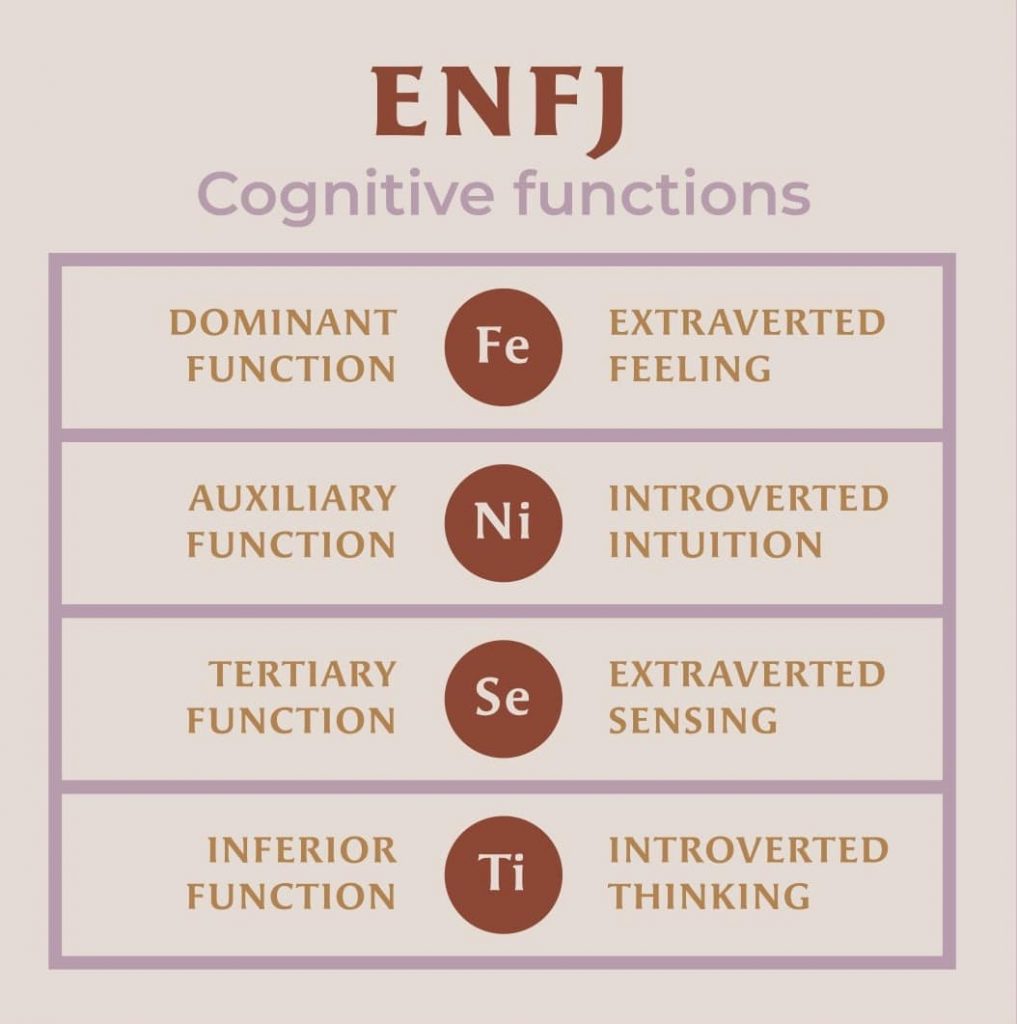
ENFJ’s and Interpersonal Relationships:
ENFJ’s have the potential to thrive in anything involving social dynamics, whether simple or complex, and this consequently makes them well equipped for navigating relationships – either platonic or otherwise. ENFJ’s seek to establish and nurture deep and meaningful relationships and are most compatible with those who value and seek the same. Generally, ENFJ’s are fiercely loyal, compassionate, and devoted.
However, ENFJ’s can run the risk of investing too much of themselves into any given relationship, which has the potential for emotional exhaustion and burnout. The ideal for the ENFJ is to find the balance and harmony in all things. Supposing that this is found and achieved in their relationships, they will not only grow themselves exponentially, but also all of those around them as well.
ENFJs in Friendships:
ENFJ’s tend to be kind, compassionate, considerate, and warm and have the potential to make amiable and long-lasting friendships. ENFJs possess the capacity to co-exist and get along with even the most challenging personalities. However, an ENFJ will naturally prefer to befriend those who are like-minded and share similar ideals. Although they tend towards Extroversion, ENFJ’s prefer and value close and personal relationships. The personality types that best align with that of the ENFJ are the ISFJ (Introverted, Sensing, Feeling and Judging), the INTP (Introverted, Intuitive, Thinking and Perceiving), the ESTJ (Extroverted, Sensing, Thinking and Judging), and the ESTP (Extroverted, Sensing, Thinking, Perceiving).
As ENFJ’s are empathetic and very attuned with others’ emotions, this can be perceived as overly sensitive, especially by non-Feeling types such as the ISTP (Introvert, Sensing, Thinking, and Perceiving), ISTJ (Introverted, Sensing, Thinking and Judging), and ESTP (Extroverted, Sensing, Thinking, and Perceiving). They may not particularly sugar-coat or hold back on criticism or feedback for these personality types. The ENFJ will tend to take this personally and find their feelings getting hurt more often than not. Of course, this is not the intention of the non-Feeling personality types; however, it is often in the ENFJ’s nature to receive or perceive it in this way.
Again, although these personalities do indeed have the potential to not flourish as well as with others, this is not to say that these friendships and relationships are impossible. However, the ENFJ may find the blunt and forthcoming approach emotionally exhausting and should actively seek out and understand the intention behind it, so they are able to take it as less of a personal attack on their identity, and, instead, use it as an opportunity for new insights and constructive feedback.
ENFJ’s Romantic Relationships:
ENFJ’s have truly invaluable tendencies and traits that are conducive to healthy and productive relationships. Empathetic and responsive, the ENFJ tends to thrive in romantic relationships, especially with those personality types that hold the same or similar values. ENFJ’s will offer undying support, motivation, and loyalty to their partner. In the right environment, this can inspire growth for both the ENFJ and their partner.
ENFJ’s also have the potential to put the happiness or feelings of their partner above their own.
This tendency can contribute to a healthy relationship if this devotion and selflessness are recognized and appreciated.
However, if gone unnoticed or unappreciated, it can make for points of both resentment and contention within the relationship. What’s worse, if there is a tendency to take advantage of this altruism on the partner’s side (whether knowingly or not), it can indeed lead to a potentially toxic relationship.
Therefore, the ENFJ must not lose themselves entirely in any given relationship, regardless of the type. An ENFJ can run the risk of defining their self-worth and can lead to volatile and fluctuating self-esteem. ENFJs prefer balance and harmony in all aspects of their lives.
Families:
ENFJ’s have the capacity to make excellent parents. Just as they are natural fits as social workers and teachers, the ENFJ can settle into the role of parent quite comfortably. They tend to develop a mentor and protégé relationship with their children. They are constantly challenging them and developing them to their full potential. However, it is also within the nature of the ENFJ personality type to tread in the realm of idealism. This is a benefit in some respect, even in parenting; however, if the child is ever at odds or do not live up to the high expectations set forth by the ENFJ, it can be cause for turmoil and conflict in the parent-child relationship.
Conclusion:
Therefore, it is much clearer why the ENFJ personality type is so rare amongst the population. They are natural cheerleaders, motivators, leaders, educators, and mentors. An ENFJ can inspire a team to achieve the near impossible in the right environment. They are the ultimate team players and are prime examples of the difference between a true leader and a ‘boss’. This makes them perfect for roles within a community, society, or organization that not only deals with people but also helps and grows them.
The same applies to the ENFJ and their relationships. When an ENFJ is compatible with other like-minded personality types, the relationships forged are near impenetrable. They seek and nurture deep connections not with many individuals but with a select few. However, the ENFJ must never lose sight or awareness of the potential to give too much of themselves to others. As an ENFJ can be potentially labelled as a ‘bleeding heart’, they are prone to the danger of emotional exhaustion or burnout. And, although perhaps their greatest asset is their emotional intelligence and ability to establish strong deep connections, they must be careful not to let the opinions and thought of others be their only measurement of self-worth, lest their self-esteem will become completely outside of their control.
You can find information on famous people with ENFJ personality types such as celebrity actors, sportsmen, characters and other historical characters with this personality type.


